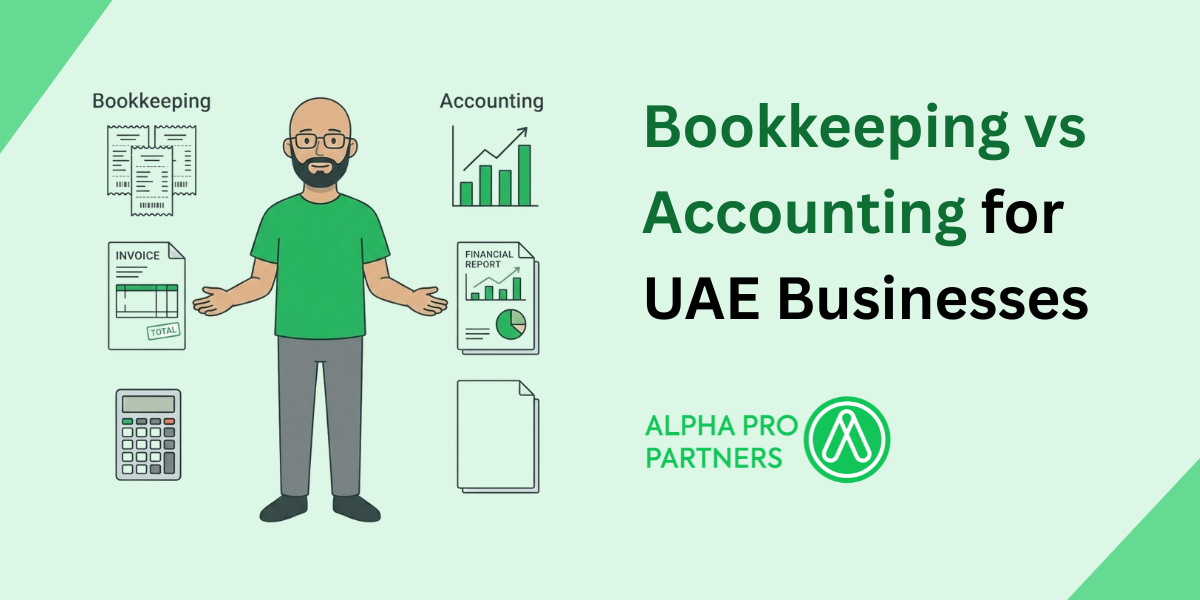Taxation of Partnerships in the UAE: Incorporated vs Unincorporated

Running a partnership in the UAE comes with tax responsibilities that depend on how the business is structured. Some partnerships are taxed in their own name, while others pass profits directly to the partners, who then report them individually.
Knowing which category applies to your partnership is essential. It can help you avoid late filings, errors in reporting, and unexpected fines. In this guide, we explain how partnerships are treated under the UAE Corporate Tax system, the filing requirements, compliance steps, and the practical points that every partnership should understand.
Do Partnerships Pay Corporate Tax in the UAE?
Yes. But the way tax applies depends on the type of partnership. The UAE Corporate Tax framework recognizes two types:
- Incorporated partnerships
- Unincorporated partnerships
These categories determine whether the entity itself pays tax or whether the partners are taxed on their individual share of the profits. Understanding this distinction is crucial because it changes how you file, who reports income, and how compliance responsibilities are divided.
Incorporated Partnerships
Incorporated partnerships are structured entities, often registered as Limited Liability Partnerships (LLPs), Limited Partnerships (LPs), or similar forms recognized under UAE law. They are treated as juridical persons, meaning the partnership itself is legally separate from its partners.
Tax Obligations
- Must register with the Federal Tax Authority (FTA) and obtain a Tax Registration Number (TRN)
- File a Corporate Tax return each year on behalf of the partnership
- Pay 0% on the first AED 375,000 of taxable income, and 9% on amounts above that threshold
- Prepare audited financial statements if revenue or regulatory thresholds require it
- Comply with transfer pricing rules if transactions with related parties occur
- Maintain detailed records for at least seven years to support filings
Why Businesses Choose This Structure
Incorporated partnerships provide liability protection, a clear governance structure, and credibility in the market. They are popular among professional service firms, consulting companies, legal practices, and investment vehicles that require formal recognition and a structured way to manage profits, responsibilities, and obligations.
Unincorporated Partnerships
Unincorporated partnerships are more informal. They involve two or more people operating a business together without creating a separate legal entity. These setups are often found among professionals, small traders, or project-based collaborations.
Tax Transparency
Unincorporated partnerships may elect to be treated as transparent for Corporate Tax purposes. Transparency means:
- The partnership itself is not taxed
- Each partner is taxed on their share of the income
- Partners file individual Corporate Tax returns (if they meet thresholds)
- Elections for transparency must be made during registration
Compliance Requirements
Even with transparent treatment, unincorporated partnerships must:
- Register with the FTA
- Maintain financial records that show how income and expenses are allocated
- Document the partnership agreement and profit-sharing ratios clearly
This option can be attractive for natural persons, particularly when each partner’s income remains under AED 375,000, allowing them to benefit from the 0% threshold individually.
Choosing Between Incorporated and Unincorporated Partnerships
When evaluating which approach works best for your business, consider:
- Current structure: Incorporated partnerships are automatically treated as juridical persons.
- Tax efficiency: Transparent treatment may reduce overall tax if partners individually fall below thresholds.
- Nature of partners: If all partners are natural persons, transparency can be beneficial.
- Future goals: Incorporated structures may be more suitable for growth, external investment, or regulatory approvals.
Profit Allocation and Reporting
Accurate allocation of profits and expenses is critical in both types of partnerships.
- Incorporated partnerships: File one corporate tax return. Payments to partners are not deductible unless classified as salaries or expenses.
- Unincorporated partnerships: Allocate profits to each partner. Each partner is responsible for filing their own return and paying any applicable tax.
Without clear agreements and consistent records, disputes may arise, and the FTA could reject filings or impose penalties.
Can Partnerships Form a Tax Group?
Incorporated partnerships may qualify to form a tax group with other UAE entities if:
- A parent company owns at least 95% of the subsidiaries
- All entities use the same financial year and accounting standards
- None of the entities are exempt or receiving Free Zone 0% benefits
Unincorporated partnerships are not eligible to join tax groups.
VAT vs Corporate Tax
VAT and Corporate Tax are two separate systems. VAT applies to the supply of goods and services, while Corporate Tax applies to net business income.
- Partnerships must register for VAT if their taxable supplies exceed AED 375,000 annually
- Corporate Tax applies regardless of VAT status
Being VAT-registered does not remove the requirement to register and file for Corporate Tax. Both obligations must be handled independently.
Practical Examples
Unincorporated Legal Practice
Three lawyers share office space and resources under one license. They elect transparent treatment, and each files individually, benefiting from the 0% threshold if their income remains under AED 375,000.
Engineering LLP
A consultancy operates as a Limited Liability Partnership. It files one return, pays tax on profits above the threshold, and deducts partner salaries structured as business expenses.
Real Estate Joint Venture (Unincorporated)
Two families jointly invest in property. Profits are split according to agreement, and each family reports income separately under the transparent model.
Creative Agency Startup (Incorporated)
Three founders establish a digital agency under an LLP structure. The firm files a single tax return and manages its obligations directly with the FTA.
Penalties for Non-Compliance
Penalties apply to partnerships that fail to comply, even if no tax is ultimately due. Examples include:
- AED 10,000 for late registration
- Daily fines for late return submission
- Additional charges for incorrect or incomplete filings
In transparent partnerships, if one partner underreports, the FTA may audit all partners and apply penalties across the group.
Staying Compliant
To maintain compliance, partnerships should:
- Keep profit-sharing agreements in writing
- Maintain accurate financial records for all partners
- Ensure clear responsibilities for preparing and filing returns
- Monitor deadlines and register with the FTA promptly
Strong governance and accurate bookkeeping are the best defenses against disputes and penalties.
Why Compliance Matters
Compliance is not only about avoiding penalties. It demonstrates professionalism, builds credibility with regulators and investors, and reduces the risk of lengthy audits. Partnerships with strong compliance practices are better positioned for growth, funding, and maintaining trust among stakeholders.
Compliance also supports smoother operations internally. With proper documentation, partners can avoid disputes, manage profit allocations more effectively, and ensure the partnership remains stable as it grows.
Do you run a partnership in the UAE? Contact Alpha Pro Partners today to understand your Corporate Tax obligations.
Frequently Asked Questions
Is Corporate Tax required for all partnerships?
Yes. Incorporated partnerships are taxed as separate entities, while unincorporated ones may elect transparency.
Can a partnership change its tax treatment?
Only with approval from the FTA, and elections must be filed correctly and on time.
How are profits handled in transparent partnerships?
Each partner reports and pays tax only on their allocated share.
Do unincorporated partnerships need to keep records?
Yes. Records are required even if the partnership itself is not taxed.
Can someone be part of both incorporated and unincorporated partnerships?
Yes, but each must be tracked and reported separately.
Do partnerships qualify for Small Business Relief?
Yes, if the conditions and revenue thresholds are satisfied.
Are foreign partners taxed in the UAE?
Yes, on UAE-sourced income. Additional tax may apply in their home country depending on treaties.
Do partnerships need audited accounts?
Yes, if they meet the revenue thresholds or fall under categories that require it.
What happens if a partnership fails to register?
Penalties apply, including fines for late registration and potential restrictions on operations.
Can incorporated partnerships join tax groups?
Yes, provided they meet ownership, reporting, and accounting requirements.
Speak with our experts to simplify partnership registration, elections, and compliance with FTA rules.

.webp)





.webp)










.webp)


.png)
.png)
.png)
.png)
.png)

.png)
.png)



.png)
.png)





.jpg)


.jpg)





.png)
.png)






.png)


